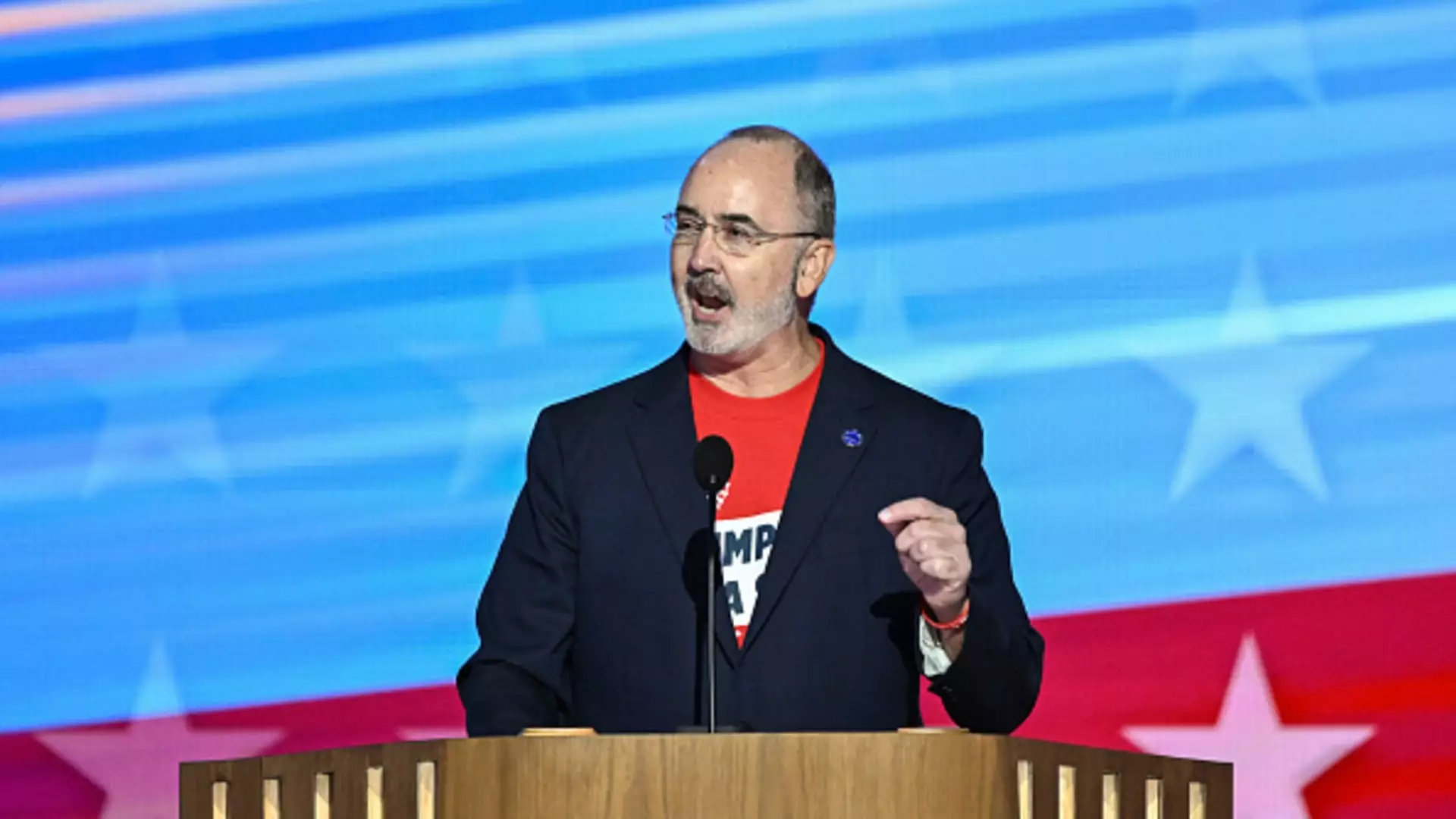In a notable political turn, UAW President Shawn Fain is breaking from the historical opposition that union leaders have often held toward conservative policies. His recent support for President Trump’s North American tariffs, which propose a hefty 25% levy on automobiles and parts, raises significant questions about the union’s future, the trajectory of American manufacturing, and the implications for workers. For a figure who once denounced Trump vehemently, this rapprochement signals a profound shift not only in Fain’s attitudes but also suggests a strategic recalibration within the UAW itself.
Fain’s comments that tariffs are a necessary measure to “stop the bleeding” of American jobs resonate deeply in an environment where free trade agreements have often been perceived as contributors to job losses and eroded economic security for blue-collar workers. This forceful stance provides a refreshing counter-narrative to prevailing sentiments among traditional auto executives who largely voice concern about the potential disruptions that tariffs may invoke.
Deciphering the Economics of Tariffs
The claim that tariffs could invigorate American manufacturing is not without merit. Fain argues that these levies against foreign imports can compel companies to bring production back to the U.S., thus fostering job creation. This theory posits that corporate America, when faced with increased costs from imports, might choose to invest more significantly in domestic production rather than absorbing the financial burden or, worse, passing it onto consumers through price hikes.
However, one must tread carefully as this brings us to the paradox of corporate responsibility. While the UAW maintains that it’s the corporations’ duty to absorb these costs, the reality often reflects a more complex picture. Corporations may not only externalize costs onto consumers—driving prices up—but they may also seek efficiency through automation or outsourcing to mitigate profit losses. The potential negative impacts of tariff-induced price inflation must be closely monitored as they could inadvertently lead to a diminished purchasing power for American workers, the very demographic the tariffs aim to protect.
Redefining the Role of American Leadership
Fain’s remarks reflect a sense of urgency in addressing the concern that manufacturing jobs have been systematically eroded over decades. His actualization that “the election is over” and that action needs to be taken stands in stark contrast to a divisive political climate that has paralyzed many leaders from crossing party lines. This underlines an essential trait needed in today’s leadership ethos: collaboration grounded in solving real problems. In this climate, Fain appears resolutely committed to advocate for his constituents’ interests, even if that means setting aside past grievances with Trump.
American workers deserve leaders who are willing to make pragmatic choices—even if those choices come from ideologically opposing camps. Fain’s newfound willingness to engage with the Trump administration, despite historical hostility, could be emblematic of a larger trend where issues transcend political bias, allowing for more comprehensive solutions to economic malaise.
Potential Pushback From Corporate Executives
Interestingly, the auto sector’s response to increased tariffs has been more skeptical. Executives claim that Trump’s measures could inject chaos and additional costs, ultimately harming the very industry meant to be supported. Ford’s CEO, Jim Farley, openly criticized the impending implementation of tariffs, likening them to unproductive chaos rather than a pathway to innovation and growth. This juxtaposition—between union advocacy for protectionism and corporate skepticism about its efficacy—reveals a fault line in the current debate over trade policy.
This discord illustrates a crucial point: while tariffs may address immediate concerns of job losses and factory shutdowns, they do not guarantee investment in stateside operations. There’s a significant risk that executive boards may resort to cutbacks and layoffs as they navigate the complexities of new costs. Thus, the challenge emerges: how do unions and executives reconcile their divergent views to work collaboratively on solutions?
The Broader Implications for American Society
At a deeper level, Fain’s unexpected support for Trump’s tariff policies serves as a microcosm of the dilemmas facing working-class Americans caught in the vortex of globalization and free trade agreements. The persistent trend toward outsourcing and mechanization has left many feeling marginalized and voiceless in the economic landscape. By allying with conservative measures aimed at bolstering domestic manufacturing, the UAW’s position could align public sentiment towards a reinvigoration of American labor.
As the debate over tariffs continues to unfold, the implications for American jobs and industry cannot be underestimated. The ability of unions to adapt and seek collaboration amid a changing political landscape will play a pivotal role in determining the future of American manufacturing. Fain’s approach—while controversial—could spell a transformative chapter not only for the UAW but for the future of labor in America. As we watch this story evolve, the stakes for America’s workers have never been higher.

